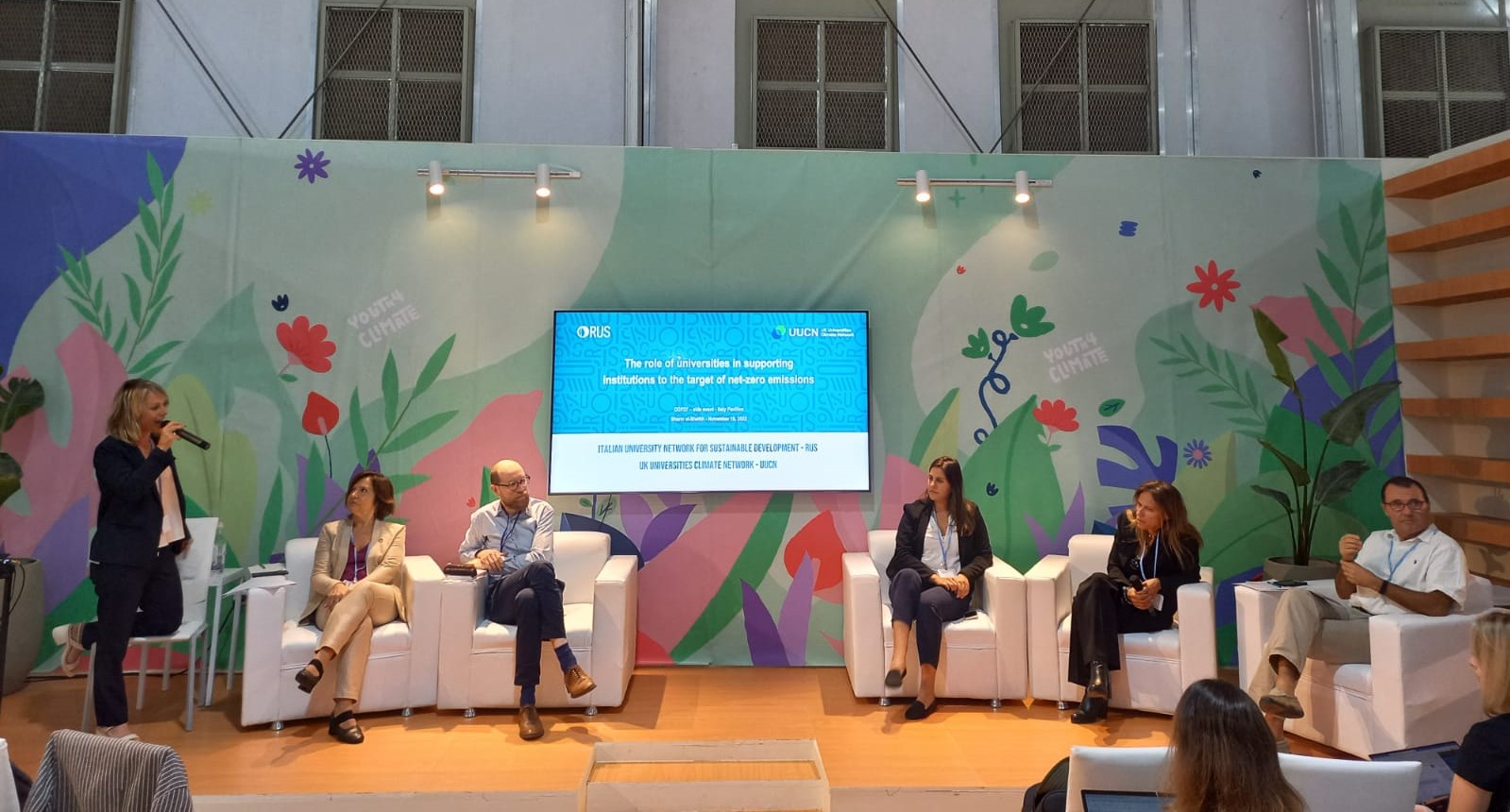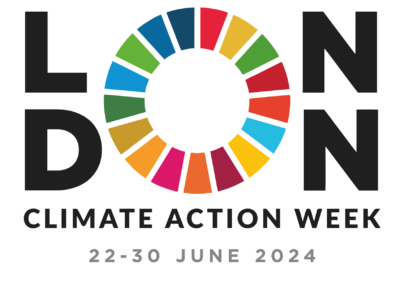Earlier this month at COP27, the Italian University Network for Sustainable Development (RUS) and the UUCN came together to deliver a pavilion event focused on the role of universities in supporting institutions to meet their climate commitments. In this joint blog, we reflect on the experience of our networks and their members and the role of higher education institutions in supporting the net zero transition.

Members of the RUS and UUCN host a discussion in the Italy Pavilion at COP27 on 16 November. Photo credit: RUS
Aligning our actions with our key purposes
Universities’ core purposes are focused on research and innovation, education, and knowledge exchange alongside missions aligned with doing good in the world and tackling global challenges. It is critical that universities take climate action as an essential part of their mission to support the wellbeing of future generations, and to responsibly manage their business operations. Our core purposes provide universities with a unique breadth of opportunity to do this:
- Research and innovation: We have expertise as universities, and we are ready to partner with stakeholders from the private and public sector. We can test our innovative technologies and solutions as living labs.
- Education: We have a strong role in training the next generation of leaders by using new teaching approaches to face the challenges of sustainability and decarbonisation.
- Knowledge Exchange: We can share our knowledge and best practices locally and globally to make communities resilient and able to fight the climate crisis
Collaboration is key
To deliver a just, equitable and resilient net zero transition, we must work together across sectors, geographies, organizations and communities. Both RUS and the UUCN have been set up as networks to support universities to collaborate to advance climate action and the wider sustainable development agenda. Both networks recognise the need to collaborate across scales from within our individual institutions to locally, regionally, nationally and internationally. It is with this motivation that we collaborated on the COP27 pavilion event and hope to continue our collaboration in the future and with wider networks of universities internationally.
Walking-the-talk and demonstrating solutions
We recognise that we need to ‘walk the talk’ and take action on our own campuses to move towards net zero and use our expertise to support the sector in its transition.
Universities often represent one of the largest organisations within their locality with a responsibility for managing the impacts of delivering their business – be they positive or negative. Therefore, universities must act to reduce their emissions to net zero in line with national and international climate commitments and build resilience across their operations and spaces to protect staff, students and property from damaging climate impacts. It is important that these actions are taken within the context of the role of universities as anchor institutions in the places they are based by working with their local authorities, businesses and community groups to scale up climate action and build a sustainable future. Universities must also account for their global outlook and operations in the actions they take and ensure they engage with partners and networks across the globe as they develop and deliver actions to tackle the climate crisis.
Both UUCN and RUS have drawn on the academic and practitioner experience and expertise within their networks to produce research papers on a range of topics from the role of developing greenhouse gas inventories to offsetting, climate adaptation, mainstreaming climate education and more. We have also produced case studies that aim to share best practice on measures individual institutions are taking to tackle the climate crisis.
RUS working papers and case studies
Joined up action
In order for universities to fulfil their potential in supporting the net zero transition, all action across universities must be joined up and expanded beyond the university itself. Efforts to reduce emissions and build resilience should cut across departments, influence research and curriculums, and be shared locally, regionally and nationally to enable greater climate action.
This blog was written by Shona Smith, UUCN co-lead for net zero universities and Paola Biglia, Coordinator at the RUS Organizational Secratariat. The content is based on key messages and case studies presented at the joint COP27 pavilion event on the role of universities in supporting institutions to the target of net zero emissions.


